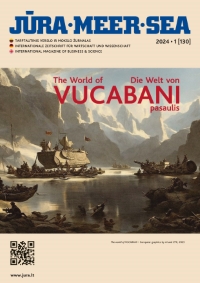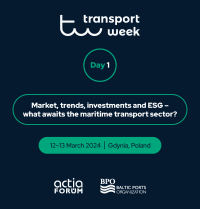Earlier this month, an elected member stood up to address the South African national assembly saying that the nation’s currency, the rand, that dropped to almost have its value against the American dollar since South Africa’s previous president assumed office. Recent related news reports from South Africa have advised that several of South Africa’s state enterprises, including South Africa Airways, the national power company, the national railway company and the national roads department were in serious fiscal difficulty. South Africa’s ports are state owned.
Introduction
There was a period over 25 years ago when South Africa was Africa’s leading economy, with a national income that exceeded the combined national income of all other sub-tropical Southern Africa nations. During that period, the financial performance of several state enterprises was comparable to that of privately owned entities of other nations. Except that during that period, South Africa administered a repugnant social policy that made the nation an international pariah state. Despite the repugnant social policy, the South African economy remained vibrant with Port of Durban achieving its status as Africa’s busiest port.
During that earlier era, South Africa’s main ports of Durban and Cape Town could easily berth and service the largest non-bulk freight ships in the world, with the largest bulk carriers sailing into the deep water ports of Richard’s Bay located north of Durban and Saldanha Bay located north of Cape Town. South Africa’s economy then and now depends on the export of natural resources via the deep water ports served by extended length “unit trains’ traveling along dedicated railway lines built many years ago prior to the change of government that occurred in 1994.
Natural Resources
South Africa is blessed with abundant natural resources that include coal, iron ore, bauxite, manganese, gold, platinum, iridium, chromium and many other mineral ores for which international markets exist. Some minerals and metallic ores seem to occur abundant in South Africa and are otherwise rare and scarce in other nations’ mining sectors. While South Africa’s mines are predominantly in private ownership, the South African government seeks state ownership of South Africa’s mineral resources and mining sector. Export of South Africa’s mineral resources sustains the operation of South Africa’s deep water ports.
State Transportation Sector
The South African Department of Transportation controls airports, airline companies, railway lines, passenger railway transportation, freight railway transportation as well as ports. South African Airways (SAA) was at one time a highly respected carrier with fiscal performance comparable to that of large private airline companies. Except that at the present day, the operation of SAA and its affiliate state-owned domestic carriers requires massive government fiscal input, as does South Africa’s road and railway system. The fiscal performance of the national electric power company, water department and national broadcasting company have been little different.
North of South Africa in the nation of Zambia, the fiscally constrained national government turned over ownership of the national power company and national broadcasting company to Chinese interests. The governments of several African nations are fiscally constrained and urgently need foreign investment to further develop their national economies. China has urgent need for the kinds of natural resources that occur in several African nations and has been willing to invest in African transportation development. Sino – African transportation investment includes railway lines that connect Zambia and Ethiopia to sea ports along with the new railway line in Kenya.
The African Silk Road Option
Many African leaders see the economic future of their nations depending on future trade with nations such as China and India, both of which seek to invest in overseas transportation development. Prior to the renewal of American economic sanctions on Iran, India sought to build a railway line between southeastern and Tehran, to connect with railway lines that connect into Europe. China’s early African railway investment connected Tanzania to South Africa as well as to a trans-Southern African railway line to Angola and an Atlantic coastal port, perhaps the precedent for future Chinese African railway development.
China’s recent railway investment in Kenya could extend into Uganda while their railway investment in Ethiopia could eventually connect into Sudan. China has also invested into railway development in Nigeria and nearby nations such as Cameroon and nations to the west of Nigeria. There is the future possibility of these railway lines eventually being connected to form a trans-Central African railway between Indian Ocean and Atlantic Ocean, with a possible future connection to the southeastern region of the Mediterranean Sea. China has also invested into industrial development in several African nations.
Future Investment
During an earlier time, African leaders gained notoriety for amassing national debt by mismanaging national resources to the point of making their nations dependent on foreign aid. Compared to Western donor nations, China provides foreign aid very differently by investing in infrastructure development in the needier nations. Nations that seek fiscal assistance from China need to offer collateral and the nation of Zambia that benefited from earlier Chinese railway investment offered the national electric power company and broadcasting company as collateral. Chinese ownership of formerly state-owned African companies is a future possibility in several African nations.
South Africa’s news media has frequently reported about mismanagement that occurred under a previous state president, a situation that the new president seeks to remedy with the assistance of investment from China. The decline in South Africa’s national currency against other international currencies reduces the cost of South African mineral resources, which nations such as China and India seek to purchase in abundance. Such export requires reliable performance along the railway lines that connect the mines to South Africa’s deep water sea ports, opening the door to possible future Chinese investment into the South African transportation infrastructure.
South African Collateral
As South Africa’s new president seeks to develop his nation’s under-performing economy, once the most vibrant on the African continent, he seeks investment from China that in turn seeks security or collateral in the event of a default. As a result of default, China owns Zambia’s electric power company and South Africa certainly has plenty of security in the form of state-owned enterprises such as ports, railway lines, a national airline company and a national electric power company. Investing in railway lines and ports assures future trade and future access to crucial resources.
The railway lines that connect to the deep-water sea ports and the ports could become collateral or security for future investment from China. South Africa’s container ports could be future collateral, especially Cape Town that is close to the trade sea route between China and Brazil as well as Indian and Brazil. Brazilian container ports and a southwestern Indian port are being upgraded to berth the largest container ships afloat, suggesting the desirability to upgrade a terminal at Port of Cape Town. In the future, South Africa might have to consider selling off state enterprises to secure overseas investment.
Conclusions
South Africa’s new state president has reached out to China to provide funding to help develop South Africa’s economy that over the past decade, has forfeited an estimated $10 billion worth of new private business development. Several of South Africa’s state-owned transportation sector enterprises are technically bankrupt. While the South African government may be reluctant to sell off these enterprises, some of these enterprises may be the only security that South Africa could offer in exchange to secure loans from overseas. A combination of three maritime ports, two main railway lines that connect to the deep-water ports and the national airline are prospective candidates for future foreign ownership.
The opinions expressed herein are the author's and not necessarily those of The Maritime Executive.
The Maritime Executive










